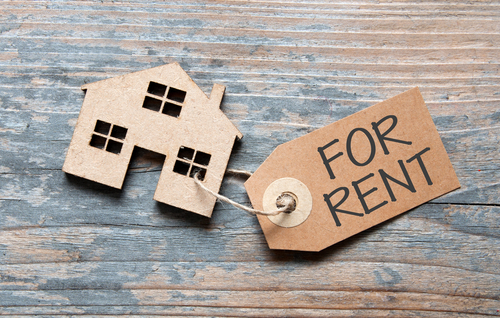Are you stuck between buying a home and buying an investment property? Well, there’s a way you can do both. House hacking is a strategy that allows investors to earn income by renting out their primary residence. To learn how to get started with house hacking, the pros and cons, and considerations for property owners, just keep reading.
Contents of This Article:
- What Is House Hacking?
- How to Get Started House Hacking
- Pros and Cons of House Hacking
- Considerations for Property Owners
- Get Help Managing Your Investment
What Is House Hacking?
House hacking is a real estate investment strategy that generates income from your home. There are a few different ways to do this. For instance, you can rent out a portion of your primary residence or buy a property and rent out portions of the home to earn income.

One of the most popular house hacking strategies is buying a multifamily property, living in one unit, and renting out the others. That way, the rent you collect from tenants pays off the mortgage and covers expenses. This strategy also works with single-family homes, although it provides less privacy and more shared space.
House hacking started in areas where it became too expensive to own a home comfortably. Many homeowners found it too expensive to live near work or in desirable locations and make their monthly mortgage payments. So, to offset some of the common expenses, homeowners started renting out portions of their homes for extra income.
These days, house hacking is a viable strategy to save money and earn extra income without buying a separate rental property. Next, we’ll go over how to get started and what to keep in mind if you decide to explore this investment method.
How to Get Started House Hacking
There are a few ways to get started with house hacking, whether you purchase a new investment property or use your primary residence. Here are a few steps to remember if you’re considering renting part of your single-family or multifamily property.

- Figure Out Financing
- Find the Right Property
- Calculate Profitability
- Move In and Find a Qualified Tenant
Figure Out Financing
There are several different ways to finance real estate. For example, if you’re looking to buy a primary residence and rent out a room or two, you’d likely consider a conventional mortgage loan. However, there are also homebuyer-assistance programs, which may offer better terms and lower down payment options.
For instance, there are options like Federal Housing Administration (FHA) loans, which allow multifamily properties with up to four units and require a lower down payment than typical mortgage loans. Additionally, there are short-term financing options, like hard money loans, which are suitable for BRRR investments where you buy, rehab, rent, and refinance a property.
Find the Right Property
Once you’ve decided on a financing option that fits your investment strategy, you can look for an applicable property if you’re not using your current residence. Remember that while looking for a good rental property, you’ll want to consider price, location, and other desirable factors.
If it’s your first time buying an investment property, consider working with an agent specializing in the property type you want. If you’re house hacking, multifamily properties are the most popular option. However, you may look for finished basements, properties with easily converted areas, multiple bedrooms, or additional dwelling units.
Calculate Profitability
Once you’ve chosen a property type that fits your criteria, you’ll want to run a real estate analysis to determine the profitability of your investment. For the analysis, you must estimate your rental income and property expenses to find your Net Operating Income (NOI).

Aside from rental income, some factors to consider include the following:
- Property Taxes
- Insurance
- Maintenance
- Repairs
- Utilities
- Operating Expenses
- Potential Vacancies
Once you have a list of probable expenses, you’ll want to calculate the monthly mortgage payment, in which you’ll need the purchase price and estimated down payment amount. There are several mortgage calculator tools to help find this number. Once you have that, you can subtract it from your NOI to find your monthly cash flow.
Move In and Find a Qualified Tenant
Once you’ve crunched the numbers and found a profitable property, you can close on your loan and move in. Then, once you’re in the property, you can work with a property management company in Baltimore to find qualified tenants to live in the property with you. To find a tenant that’ll pay on time, you’ll need a thorough screening process and look into each applicant’s rental and financial history. That way, you can make an educated decision on who will best fit your rental unit.
Pros and Cons of House Hacking
No investment strategy is perfect. Depending on the property you choose, the income you generate, and your willingness to become a landlord, house hacking may have several pros and cons. Here’s what to remember before diving into a house hacking strategy.
Benefits of House Hacking
- Produce Extra Income- House hacking allows you to put money toward your monthly mortgage payment. Additionally, you can put extra income toward your mortgage, property expenses, or future investments.
- Build Equity- As you put more money toward your monthly mortgage payment, you can pay it off faster and quickly build equity.
- Gain Landlord Experience- House hacking can give you some experience as a landlord if that’s something you want to do in the future. You’ll need to screen tenants, create rental agreements, manage properties, and more.

Disadvantages of House Hacking
- Potential Vacancies- There may be periods when you don’t have any tenants in your rentals, which means you’re not generating rental income.
- More Wear and Tear- You can expect extra wear and tear when you own rental properties. Landlords or property managers are responsible for fixes and repairs in a rental property.
- Less Privacy- House hacking generally means living with others in some capacity. Whether you’re sharing a single-family home or multifamily property, you won’t have as much privacy as you would in your own property.
Considerations for Property Owners
If you’re thinking about house hacking but are new to this investment strategy, there are several considerations to keep in mind. First, here are some tips for property owners looking to rent out portions of their property, also known as house hacking.
Finding the Right Tenants
One of the biggest mistakes you can make while house hacking is allowing the wrong tenants to live in your property. It’s crucial to have a solid screening process before allowing tenants in to ensure they will pay rent on time. Additionally, although you may develop close relationships with your tenants or “housemates,” you should always take your role as a landlord seriously.

Choosing the Right Area
Another crucial factor of house hacking is finding the right location for a rental property. Choosing the right area allows you to charge profitable rental rates, attract high-quality tenants, and have consistent rental demand. Remember, if you wouldn’t want to live there, it may be hard to find others who would.
Saving for Repairs
If you’re not financially ready to fix necessary repairs or perform seasonal maintenance, you can fall back financially with your rental investment. However, to stay prepared for any given scenario, you’ll want to set aside a budget for repairs and other necessary expenses. For instance, if it’s time to upgrade the appliances in your rental, you don’t want it to be a huge setback for your finances.
Get Help Managing Your Investment
Whether you want to explore house hacking or buy your first investment property, management is crucial for any rental. Housing rental tenants require a lot of steps and due diligence. For instance, you’ll want to screen all applicants to ensure they’re right for your property, set boundaries and expectations for your tenants, make necessary repairs, collect rent, and more.
Unfortunately, all the day-to-day tasks of owning a rental add up quickly, sometimes resulting in an unwanted full-time job. That’s why many investors look for a solid property manager or management company to keep their rentals well-maintained.
Need help managing your investment? Contact bmg today!
If you want someone to manage your investment, consider hiring Bay Property Management Group. Our full-service rental management team can help you find good tenants and manage your property to ensure you get the best ROI. Contact BMG today to learn more about our services and how we can help your business succeed.


